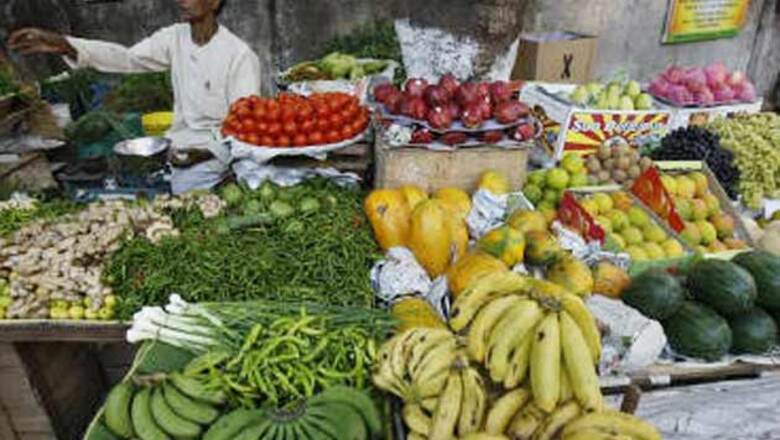
views
New Delhi: India's annual food price inflation eased in early October but remained stubbornly high, keeping pressure on the central bank to raise policy rates by 25 basis points at its review on November 2.
While high food prices are largely beyond the scope of monetary policy, they feed into rising inflation expectations and make government targets to bring headline inflation down to 6 per cent by the end of December increasingly challenging.
Investors have been pricing in a 25 basis point rate hike when the Reserve Bank of India reviews policy on November 2, after the annual wholesale price index rose 8.62 per cent in September from 8.5 per cent in August.
"RBI is expected to raise rates by 25 basis points on November 2, though it will have marginal impact on food inflation," said Basanta Pradhan, an economist at the Institute of
Economic Growth in Delhi who expects food inflation to ease into single-digits in the next three months on a new harvest and the high base effect.
China's central bank on Tuesday raised rates for the first time in nearly three years, and on Thursday reported inflation of 3.6 per cent, a 23-month high.
A rate rise in India would be the sixth since March for a central bank that has been scrambling to cope with headline inflation that was in double digits for six months through July.
Data on Thursday showed the food price index in the year to October 9 rose 15.53 per cent, compared with 16.37 per cent in the previous week, as prices of poultry, fish, fruits and vegetables eased.
Fuel inflation for the same period was stable at 11.14 per cent. The primary articles price index was up 18.05 per cent.
Food makes up 14 per cent of the wholesale price index (WPI) while fuel contributes 15 per cent.
Analysts believe the Reserve Bank of India is nearing the end of its tightening cycle and expect at most two rate increases by end-March 2011, when the fiscal year ends.















Comments
0 comment